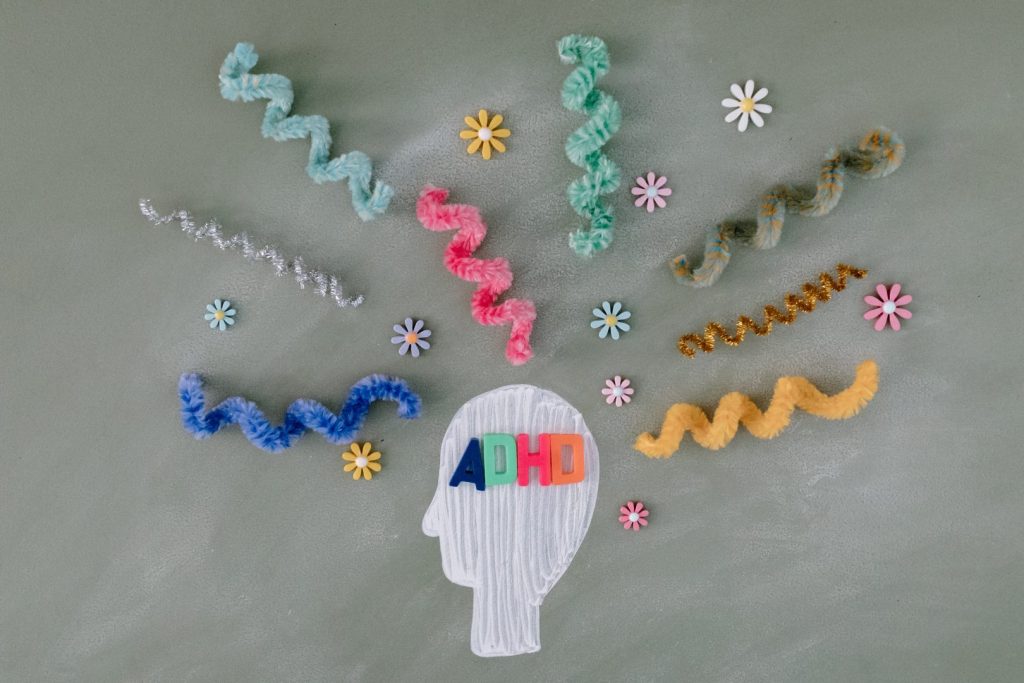We all live in a digital world. We spend many hours using tech devices, combining work and pleasure. Our kids often copy our behavior.
By switching productive tech usage for studying with video games and social media platforms, our kids become slaves of their screens and develop a screen addiction.
Screen addiction is defined as excessive and obsessive usage of various tech devices (smartphones, tablets, computers, TV), scrolling through social media, watching videos, and playing video games.

Another common health problem, especially in kids nowadays is ADHD, also known as Attention-Deficit / Hyperactivity Disorder.
ADHD is a mental disorder that often affects kids’ childhood and causes difficulties in paying attention and controlling impulsive behaviors. So, an often dilemma is whether screen addiction is a symptom of ADHD.
Well, medical experts state that although children with ADHD have a bigger chance of developing excessive screen time habits, screen addiction doesn’t necessarily mean that your child has ADHD.
Understanding ADHD
ADHD hinders children’s ability to control and manage their behavior. Children with ADHD often have problems with their siblings, school friends, and family.
· Symptoms of ADHD
Keep in mind that if your children showcase some of these symptoms, it doesn’t always mean they have ADHD. Common symptoms of ADHD in children can be divided into two categories:
- Kids have difficulty paying attention, concentrating, and focusing;
- Kids are hyperactive and act impulsively;

· Causes and Risk Factors of ADHD
Inherited genes from blood relatives who suffer from ADHD or another mental health disorder are one of the biggest risk factors for ADHD. Besides genes, other biological and chemical factors cause ADHD in children, such as:
- Brain injury;
- Premature delivery and low birth weight;
- Exposure to environmental toxins;
- Consumption of alcohol, cigarettes, and drugs during pregnancy;
- Consumption of food with low nutrition value;
- Low fitness level;
· Diagnosis and Treatment of ADHD
The early diagnosis of ADHD in children can be done by parents or school teachers, if they notice any of the symptoms of ADHD.
Once an expert verifies the kid’s condition as ADHD, treatment includes medications, behavioral therapy, and social therapy with family and friends.
Screen Addiction
Screen addiction is the excessive usage of tech devices. Studies show that about half of all children are addicted to their tech devices. There are many types of screen time activities, such as:
- Interactive screen time (browsing on the Internet and playing video games);
- Screen time for communication (social media);
- Creative content screen time (arts, crafts, music);
- Passive screen time (watching TV and videos);

The Link Between Screen Addiction and ADHD
It is a well-known medical fact that screen addiction doesn’t cause ADHD. But there is another link between screen addiction and ADHD.
Expert studies show that children with ADHD have a higher chance of having excessive screen time habits and developing a screen addiction.
There are many consequences of screen addiction. Excessive screen time can lead to mental overload and concentration problems.
Moreover, excessive screen time can have a negative effect on vision, posture, and fitness levels. That’s why parents must engage their children in outdoor activities more.
The Impact of Screen Addiction on Kids’ Mental Health
Studies show that excessive screen time usage can cause a bigger chance of children developing mental health problems, such as depression and anxiety.
Also, the Internet is a place where children can come across online dangers, such as inappropriate content, online predators, and cyberbullies.

Exposure to this type of content can also harm children’s emotional development. The biological explanation of why screen addiction is so often in children is that when children use screens, their brain releases dopamine, a hormone that makes them happy and satisfied.
The best way to battle screen addiction is to set screen time limits from a young age and engage children in family bonding, time outdoors, and extracurricular activities.
Make sure that your children make friends in real life. You can organize neighborhood hangouts, family gatherings, and much more.
The Potential Benefits of Screen Time
Up to this point in the article, we only talked about the negative sides of screen time. Now it’s time to look at the potential benefits of screen time.
Firstly, screens can be used in education. Nowadays, teachers also often use tech devices in the classrooms to create interactive presentations and quizzes for their students. Also, children can use search engines to broaden their knowledge and answer their curious questions.
Moreover, children can use tech devices to connect with their friends and relatives from all around the world. They can also embrace their creativity by using apps for music, arts, and other creative activities.

Although screen time can have a lot of benefits, it’s also a must to combine screen time with other outdoor activities, such as family bonding and outdoor activities.
Conclusion
There is a complex relationship between screen addiction and ADHD in kids. The fact is that screen addiction doesn’t necessarily mean that your child has ADHD, but kids that suffer from this disorder have a higher risk to develop screen addiction.
Teach your little ones to be smart users of tech devices, to use the benefits of tech such as communication, interaction, getting informed, and avoiding the countless tech risks.
Be supportive parents, be present in your little ones’ lives, and raise your kids with love and affection. Teach them real-life values to accept and respect kids that are different from them, and cherish honesty and friendship.
FAQs
What are the early signs of ADHD?
Early signs of kids’ ADHD include avoiding socialization, low academic performance, lack of focus, forgetfulness, hyperactivity, and such.
Can ADHD be cured?
Unfortunately, there is no cure for ADHD, but proper treatment can manage this condition. Friends, family, and the environment should be supportive and accept these kids equally.
Is it possible to be addicted to screens?
Yes, screen addiction is a real condition that affects kids’ physical and mental health.
How can I help my child manage screen addiction and ADHD?
Be a rational and present parent, implement strict rules and boundaries about using tech devices, set a family media plan, and engage children in outdoor and family activities.







